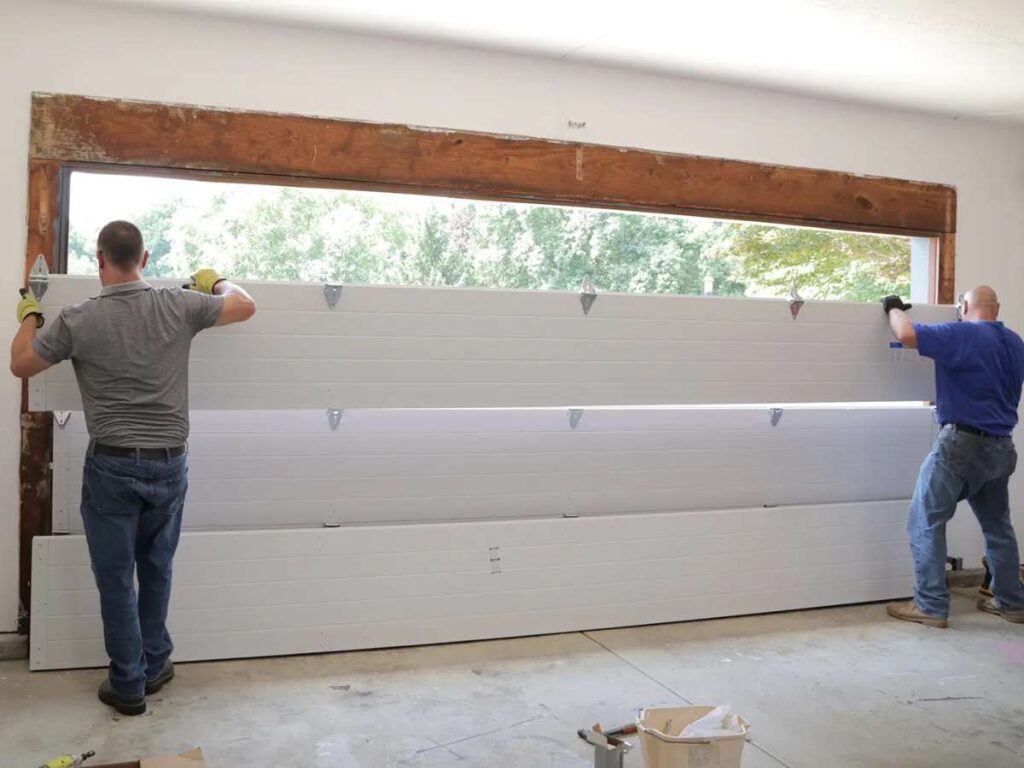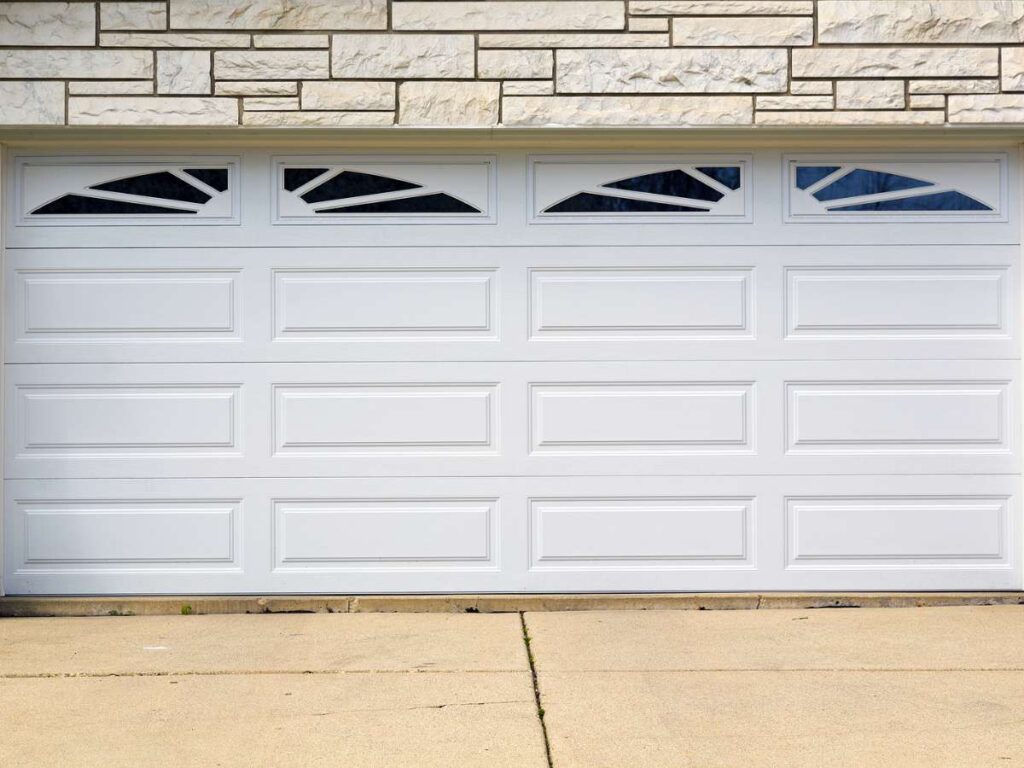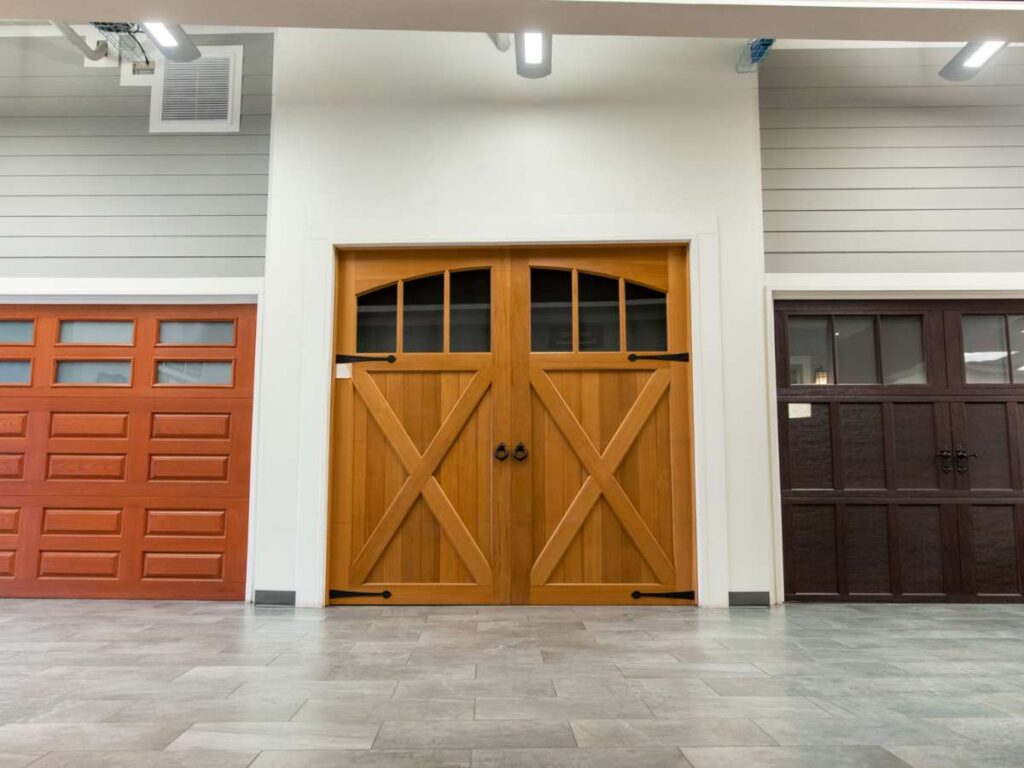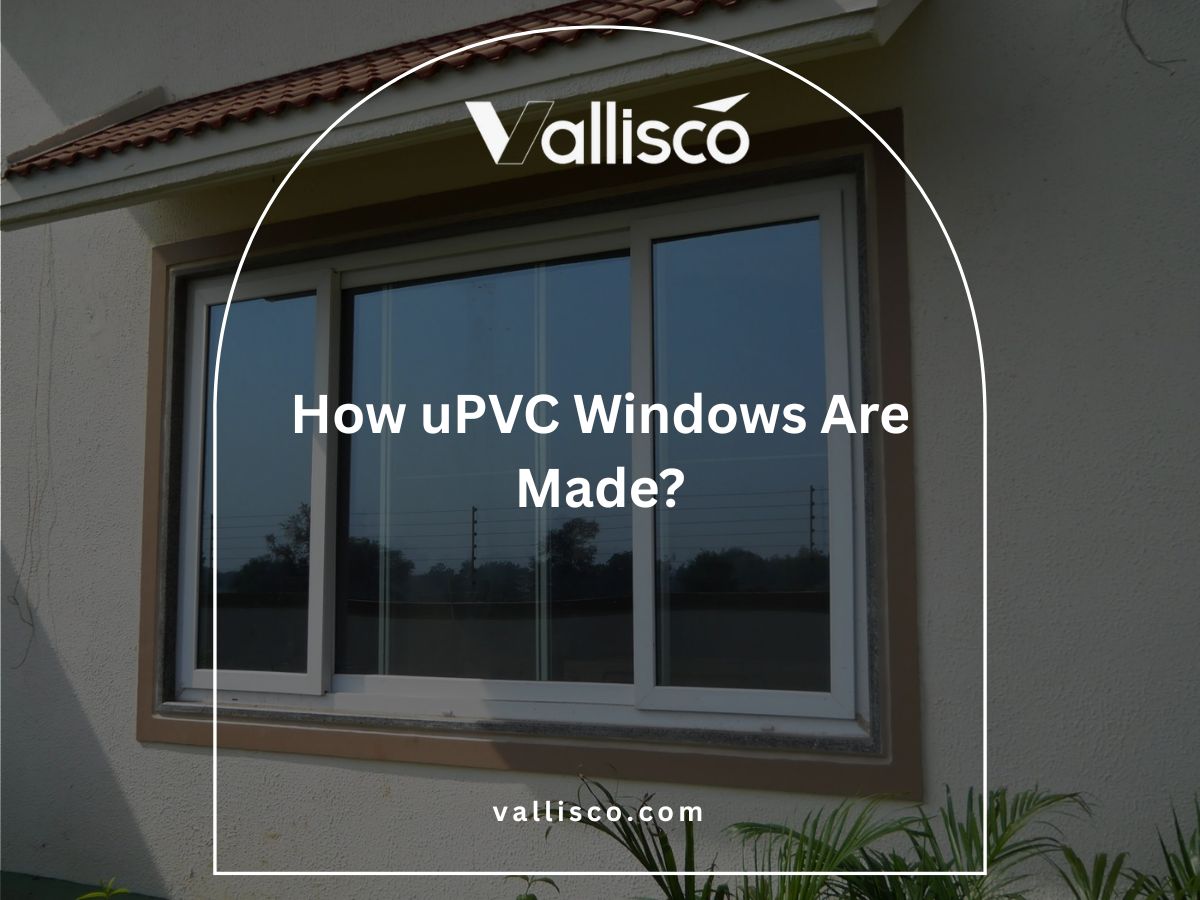I remember the first time I had to order garage doors for a new villa project. It wasn’t just about picking a style, it was about finding a supplier who understood deadlines, quality, and large orders.
That experience taught me that choosing the right source saves time and prevents costly mistakes.
It also builds long-term partnerships you can rely on for future projects.
I’ve worked with many suppliers over the years and have seen what makes one stand out from the rest.
This review comes from real industry experience and from seeing which suppliers deliver on their promises. Here’s what you’ll get in this article:
- Clear list of trusted places to buy garage doors
- Key details on what each offers
- Insights to help you choose the right supplier for your project
Whether you run a hotel, manage a housing development, or upgrade several villas, this guide can save you hours of searching.
Let’s dive in!
Quick Comparison Chart
When you’re weighing different places to source garage doors, it helps to see the essentials side by side. This chart gives you a quick look at the strengths and key points for each option so you can narrow your shortlist faster.
| Place | Best For | Key Strengths | Main Considerations |
| Local Garage Door Dealers & Installers | Regional projects, multiple properties | Local expertise, fast site visits | Range may be limited, quality varies |
| B2B Manufacturer Websites | Bulk orders, consistent supply | Direct access, long-term partnerships | Minimum order volumes, logistics planning |
| Specialized Door & Window Showrooms | Design-focused builds | Deep product knowledge, premium options | Higher cost, longer lead times |
| Online Marketplaces | Early supplier search, price checks | Wide supplier network, easy comparisons | Quality control, shipping costs |
| Wholesale Building Material Suppliers | Large-scale builds | Lower per-unit cost, bulk logistics | Minimum orders, less custom work |
| Regional Construction Supply Hubs | Multi-site projects | Centralized distribution, faster deliveries | Bulk focus, quality varies |
| Direct-to-Consumer Brand Websites | Custom orders, brand-specific builds | Full product range, direct contact | Lead times, shipping costs |
Each option has its place depending on your project’s size, scope, and timeline. If you match the supplier’s strengths to your exact needs, you’ll save time, avoid delays, and get better results for your build.
1. Local Garage Door Dealers & Installers
I’ve found that local dealers can be a strong partner for large projects. They’re often easier to reach, and you can get straight answers without waiting on a long email chain. If you’re managing a villa, hotel, or multi-unit project, the right local supplier can save you time and avoid delays.
Advantages of Local Dealers
- Knowledge of Local Conditions: Local suppliers understand the weather, building styles, and regulations in your area. This means they can recommend materials and designs that hold up well and meet compliance requirements.
- Quicker Site Visits: If you need a measurement or inspection, they can come to the site quickly. This is valuable when you’re trying to keep your construction schedule on track.
- Established Community Connections: Many local dealers have long-standing relationships with builders, architects, and inspectors. These connections can smooth the process when you need approvals or special arrangements.
Considerations
- Product Range And Quality: Not all dealers carry the same brands or materials. Check if they can provide the type of door you need for your specific building style and climate.
- Capacity For Large Orders: If you’re replacing or installing several doors, confirm that they can handle bulk orders without delaying your project. This includes checking lead times for both supply and installation.
- Service And Warranty Terms: Ask about after-sales service, warranty coverage, and how quickly they respond to maintenance requests. For B2B projects, these details can impact long-term satisfaction.
Bottom Line
Local garage door dealers can give you an edge in both service and speed. Their on-site presence and area-specific knowledge make them a practical choice for projects that can’t afford delays.
When you find one with the right product range and proven reliability, they can become a long-term partner for future builds or upgrades.
It’s worth building that relationship early, especially if you manage multiple properties. For many B2B buyers, a trusted local supplier can be just as important as the doors themselves.

2. B2B Manufacturer Websites
I’ve found that going straight to the manufacturer can often be the most reliable option for larger projects. When you work directly with a B2B manufacturer, you get clear communication, access to technical expertise, and sometimes better control over production and delivery.
For buyers who need multiple garage doors across villas, hotels, or housing developments, this route can make a real difference.
Advantages of Buying From B2B Manufacturers
- Direct Access to Technical Knowledge: Manufacturers know their products inside and out. They can provide detailed guidance on materials, insulation, and performance.
- Better Control Over Orders: Buying direct allows you to customize specifications and manage lead times more closely. This is especially useful if you’re balancing multiple building schedules.
- Stronger Partnership Opportunities: Building a relationship with a manufacturer can create long-term supply stability.
- Potential Cost Savings: Without multiple layers of distributors, you may find more competitive pricing for large-volume orders. This can help you keep project budgets on track.
Considerations
- Minimum Order Volumes: Manufacturers usually set minimum order requirements. Confirm these before starting discussions so you know if your project qualifies.
- Longer Lead Times For Production: Depending on the order size and customization, production may take longer than buying from a wholesaler. Factor this into your construction timeline.
- Logistics And Shipping: Freight costs and delivery coordination are often your responsibility. Clarify these details early to avoid hidden expenses.
Bottom Line
Working with B2B manufacturer websites gives you the advantage of going straight to the source. You get expert advice, reliable product details, and the chance to build a lasting supply relationship.
For large projects where quality and consistency matter, manufacturers like Vallisco can be dependable partners. If you’re ready to streamline your sourcing, this option is worth strong consideration.

3. Specialized Door & Window Showrooms
I like working with specialized showrooms when the project needs a certain look or feature that big chains can’t always offer. These businesses focus on doors and windows, so their product knowledge runs deep. If you want detailed advice and access to premium or niche options, this is where you can find it.
Advantages Of Specialized Showrooms
- Expert Product Knowledge: Staff are often trained specifically on doors and windows. They can explain material differences, insulation benefits, and hardware options in detail.
- Access To High-Quality And Specialty Lines: Showrooms often carry brands and designs you won’t find in general retail chains. This is helpful if your project calls for a specific style, finish, or performance level.
- Hands-On Product Viewing: You can see and touch full-size samples in person. This helps when choosing colors, finishes, or hardware for a coordinated design.
- Customizable Options: Many showrooms work with manufacturers that can adjust sizing, finishes, and features. It’s a good option if you have non-standard openings or specific architectural requirements.
Considerations
- Higher Price Points: Specialized products often cost more than standard retail options. For B2B projects, weigh the benefits against the budget.
- Lead Times For Custom Orders: Custom or imported items can take weeks or months to arrive. Plan early to avoid project delays.
- Location And Access: Showrooms are often in larger cities. Factor in travel or delivery logistics if your site is far from their location.
Bottom Line
Specialized door and window showrooms are best for projects where design, quality, or technical performance is a priority. They may not be the fastest or cheapest option, but they can help you achieve a specific vision.
If your project demands a higher standard of fit and finish, building a relationship with a showroom supplier can be worth the extra planning and cost.

4. Online Marketplaces
I’ve turned to online marketplaces when I needed a wide search for suppliers without making dozens of calls. They make it easy to compare prices, product features, and supplier ratings from one place. For B2B buyers, this can be a quick way to build a shortlist before making direct contact.
Advantages of Online Marketplaces
- Wide Supplier Network: Platforms like Alibaba, Global Sources, or Made-in-China connect you to suppliers worldwide. This can be useful if you need to compare different regions or explore multiple price points.
- Easy Price and Feature Comparison: You can filter by material, style, size, and other specifications. This helps narrow down choices before requesting quotes.
- Access to Reviews and Ratings: Many platforms include customer feedback and transaction histories. These can help you identify reliable sellers and avoid poor-quality products.
- Time-Saving Search Process: Instead of visiting multiple websites, you can view hundreds of options in one place. This is especially helpful if you’re sourcing for multiple properties at once.
Considerations
- Quality Control Challenges: Products can vary in quality, even from the same seller. Always request samples before placing a large order.
- Shipping And Import Costs: Factor in freight, customs duties, and local taxes. These can significantly affect your final cost.
- Communication And Lead Time: Time zones and language differences can slow down the process. Build in extra time for responses and delivery.
Bottom Line
Online marketplaces are a powerful tool for exploring many suppliers quickly. They work best when you use them as a starting point, then follow up with careful vetting.
If you combine the reach of these platforms with proper quality checks, you can find competitive deals that meet your project requirements.

5. Wholesale Building Material Suppliers
I’ve worked with wholesale suppliers on large builds where buying in bulk made the most sense. They can offer better pricing for volume orders and often have established networks for sourcing a range of products, including garage doors.
If you manage projects that need multiple units delivered to one or more sites, this option can be very cost-effective.
Advantages Of Wholesale Suppliers
- Lower Per-Unit Costs: Buying directly from a wholesaler can significantly reduce your cost per door. This is ideal for hotels, housing developments, or villa complexes that require many doors at once.
- Centralized Ordering For Multiple Materials: Many wholesalers carry more than just doors. You can often source windows, frames, and related hardware from the same supplier, which simplifies purchasing.
- Established Supplier Relationships: Wholesalers often have long-term partnerships with manufacturers. Vallisco supplies garage doors through wholesale channels in many regions.
- Experience With Bulk Logistics: They are used to handling large shipments and can arrange freight options that fit your schedule. This reduces the risk of delays on big projects.
Considerations
- Minimum Order Quantities: Many wholesalers require you to meet a minimum order size. Make sure your project needs match their requirements before committing.
- Less Focus on Small Custom Orders: Wholesale suppliers may not prioritize small customizations. If you need special finishes or unusual sizes, confirm that they can deliver before signing an agreement.
- Location and Shipping Costs: Some wholesalers are based far from your site. Calculate freight charges to see if the savings outweigh transportation expenses.
Bottom Line
Wholesale building material suppliers can be a strong partner for projects that need large quantities at competitive prices. Their experience with bulk orders and established manufacturer ties make them reliable for consistent supply.
If you plan ahead and understand their terms, a wholesale supplier can help you control costs while keeping your project on schedule.
6. Regional Construction Supply Hubs
I’ve used regional supply hubs for projects spread across different sites. They’re often located near major transport routes and can handle a variety of building materials, including garage doors. If you want to keep procurement central but still get fast delivery to multiple locations, these hubs can be very efficient.
Advantages Of Regional Supply Hubs
- Centralized Distribution: These hubs stock a wide range of materials in one place. This allows you to coordinate orders for doors, windows, and other building supplies from a single location.
- Faster Delivery Across Regions: Being close to highways or ports means they can ship products quickly to various project sites. This helps when you’re running multiple builds at once.
- Consistent Product Availability: Larger storage capacity often means fewer stock shortages. This can reduce the risk of project delays due to supply gaps.
- Relationships With Multiple Manufacturers: Supply hubs work with different brands and factories. This gives you more options and better chances of finding what you need in one order.
Considerations
- Minimum Volume Requirements: Many hubs prefer working with bulk orders. mCheck if they can accommodate smaller shipments if needed for specific sites.
- Variable Quality Across Brands: Since they stock from multiple sources, product quality can vary. Always confirm specifications before placing a large order.
- Coordination Needed For Split Deliveries: If you’re sending orders to multiple locations, you’ll need to clearly plan the schedule. This avoids delays at any single site.
Bottom Line
Regional construction supply hubs can give you both reach and speed. They’re especially valuable when you manage multiple projects that need coordinated deliveries without sacrificing timelines.
By combining a broad product range with efficient logistics, these hubs can become a dependable partner for large-scale building operations. The key is to match their distribution strengths with your project’s size, schedule, and delivery needs.
7. Direct-to-Consumer Brand Websites
I’ve ordered directly from brand websites when I wanted to cut out the middleman. This approach can give you better access to product details, direct communication with the manufacturer, and sometimes better pricing. For larger orders, it can also mean more control over custom features and delivery schedules.
Advantages Of Buying Direct
- Direct Communication With The Manufacturer: You can get precise answers about materials, specifications, and production timelines. This reduces misunderstandings that sometimes happen with third-party sellers.
- Access To Full Product Range: Brand websites often list their complete catalog. This includes models or variations not always carried by retail stores or distributors.
- Potential For Better Pricing: Without extra distributor markups, you may get more competitive quotes, especially for bulk orders. Some brands also run direct promotions for online buyers.
- Custom Order Capabilities: Many brands allow you to configure size, finish, insulation level, and hardware directly through their site. This makes it easier to align with project requirements.
Considerations
- Lead Times Can Vary: Buying direct may still mean waiting for production, especially if the order is large or custom. Plan your project schedule accordingly.
- Shipping and Handling Costs: Freight from the manufacturer can be higher than from a nearby distributor. Compare total landed costs before deciding.
- Minimum Order Requirements: Some brands may only sell direct for certain volumes. Check terms before investing time in the ordering process.
Bottom Line
Buying through direct-to-consumer brand websites can work well if you value direct contact with the manufacturer and want full control over your order. It can give you access to a wider range of products and customization options than standard retail channels.
The key is to balance the benefits of direct access with the potential downsides of lead times, shipping costs, and order requirements. For the right project, this route can be both efficient and cost-effective.

Tips for Choosing the Right Garage Door Supplier
Over the years, I’ve learned that the right supplier can make or break a project. It’s not just about finding a door you like, it’s about making sure the supplier can meet your timelines, quality standards, and order size.
Here are some tips to help you make a confident decision.
- Match Supplier Capacity to Your Project Size: If you’re ordering for a villa complex, hotel, or housing project, make sure the supplier can handle the volume. Ask about lead times for bulk orders and how they manage production during peak demand.
- Check Past Work and References: A good supplier should have a portfolio or past projects they can share. Seeing completed installations gives you confidence in their quality and consistency.
- Clarify After-Sales Service and Warranty: For large investments, you need to know what happens after delivery. Confirm warranty coverage, response time for repairs, and whether they offer maintenance packages.
- Compare Total Landed Costs: Price tags can be misleading if you don’t include freight, taxes, and handling fees. Always calculate the full cost of your site, so there are no budget surprises later.
Conclusion
When I first searched for the right supplier, I learned it’s not just about the product, it’s about trust, service, and fit.
Now you’ve seen the top nine places to buy garage doors, you know each has strengths for different project needs. Whether you choose a local dealer, a wholesale supplier, or go direct to the brand, your decision shapes the outcome.
If you want a reliable source that understands bulk orders and delivers quality, Vallisco is ready to help. Contact us today and let’s make your next project a success.
Explore More Helpful Resources
There’s more to explore! Check out our additional product selections to find exactly what you’re looking for:
Still haven’t found what you’re looking for? Don’t hesitate to contact us. We’re available around the clock to assist you.







